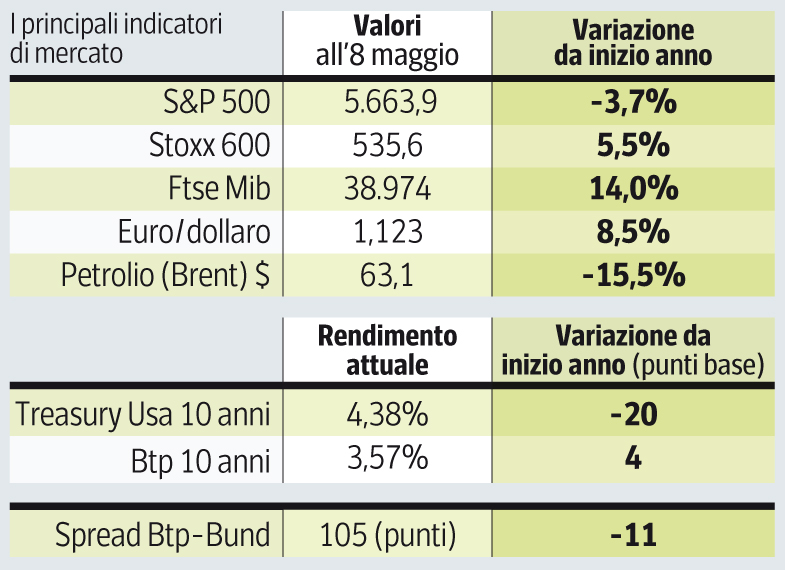The ECB wands the Popolare di Sondrio: governance deficiencies and credits to reclassify

After a six -month inspection at the Institute subject to an OPS by Bper, the European Central Bank detects several problems and requests an evaluation of the « adequate composition of the current team » of managers
The European Central Bank points the finger against the governance of the Popolare di Sondrio, currently the subject of a public exchange offer from Bper, with which he shares Unipol as a major shareholder. The ECB considers it afflicted by « serious » and « significant deficiencies » which « affect, among other things, on its credit risk management system » and gives the bank a series of « supervisory measures » aimed at improving the corporate government, whose problems involve not only the functions of risk management, compliance and audit but also « the structure and operation » of the apical management.
Frankfurt requests
Requests communicated At the Valtellinese bank, they are the result of a six-month inspection, from 17 October 2022 to 17 March 2023 on the risk of credit and counterparty with specific reference to the segments of large companies and the medium-small ones. Sondrio saw himself delivered on March 7, five days before approving the new industrial plan, the final report with the expressed request to share it on the Board of Directors and with a 15 -day deadline to replicate.
The conclusions of the report, which highlights critical issues in the corporate government, in the internal control system, in that of management of risks and audits, were confirmed in the decision communicated to the Popolare di Sondrio on April 29, on the eve of the assembly which renewed the Board of Directors for a third, with a subsequent appointment to the presidency of Pierluigi Spela in place of Francesco Venosta and confirmed as a delegated councilor of Mario Alberto Pedranzini.
Meanwhile, yesterday in a note, the Popolare di Sondrio, remembering that the inspection dates back to a past period, which dates back to more than two years ago, underlines that « with reference to each of the aforementioned surveys, the bank has long started actions and remedy measures that will complete in scheduled times and that the ECB has reserved it to evaluate over time due to their concrete effectiveness and implementation ».
In any case, the « significant deficiencies » In governance, highlighted following the inspection, they justified, according to the ECB, the imposition of a series of « supervisory measures », which also call into question the bank top management. At the Popolare di Sondrio the European Central Bank asks to proceed with the « enhancement of the structure and functioning of the managerial level », including the function of the CEO, relying on the « evaluation » of an external advisor that will indicate how to « avoid the concentration of responsibility and powers in the hands few managers », « ensure adequate separation » and « clear responsibilities between the key managerial functions » as well as « improve the surveillance of decision -making processes ». The « adequate composition of the current team » of Top Manager also writes the object of examination, the ECB writes in the letter of reliefs.
«There are serious shortcomings In the governance framework of the supervised subject – it indicates the central bank -. The decision -making bodies of the supervised subject have not managed to establish a complete and reliable complete and reliable complete internal control framework that individuals, measures, monitors and evaluates credit risks adequately ».
The critical issues in governance
They are defined as « inadequate » The « results » and « the role » of the Control and Risks Committee, as well as « the interventions of the Board of Statutory Auditors » which limits itself to « simply take note of the non -satisfactory relationships » of Risk Management, Compliance and Audit.
The governance picture « It cannot facilitate adequate functioning » both of the risk management – which presents « significant deficiencies in the execution of the controls » on the « individual credit practices » as well as « in the development and maintenance of methodologies for credit risk » – both of the Audit, whose results and role show « serious deficiencies » and whose action has been assessed as « ineffective ».
The deficiencies determine « An insufficient management of the identified risks that could expose the supervised person to a potential overestimation of their funds » and « arouse prudential concerns on the overall framework for credit risk » and in relation to the « adequate assessment of the riskyness of the credit portfolio ».
In this regard The ECB also prescribes to the Popolare di Sondrio to reclassify as probable defaults 219 million euros of exhibitions in bonis relating to 33 debtors that the bank had already set aside at the end of 2023 at the express indication of the supervision, noting the impact on the income statement but keeping them among the perfoming credits. « The motivation behind the management of the credit risk of these 33 debtors appears unusual if you take into account the acceptance of the reduction of additional value identified by the inspectors, however accompanied by the refusal to reclassify them to probable default », writes the ECB in the decision with which they imposed on Sondrio a series of vigilance measures including that of « totally integrating the results » of the inspection and Corep) by the next reference date for reporting « .
Loans
“Loans have recorded valuable reductions as they need provisions for value losses « but » despite this they still remain classified as in bonis « , the ECB is surprised. « This involves a distorted vision not only of the quality of the portfolio, but also in terms of coverage of internship 2, that is, including exhibitions with a level of reduction of value close to deterioration. The ECB therefore expresses concerns in relation to the reliability of the incidence of deteriorated credits reported and the corresponding quality of the assets « .
In the quarterly As of March 31, the Popolare di Sondrio had indicated a gross NPE Ratio (incidence of deteriorated credits) of 2.9% and net of 1%, except to indicate, in a reference to the page, that « if all reclassifications were operated » requested by the ECB, the incidence of deteriorated credits on the total credits « would become equal to 3.3% (1.4% net).
Returning to governance, « The strengthening of the structure and operation of the managerial level » represents together with the « strengthening of the effectiveness of the Board of Directors » one of the requirements imposed by the ECB to Sondrio to remedy the « significant deficiencies » detected. « To allow the administrative body to ensure effective and prudent management and facilitate adequate functioning of the internal management of risks, compliance with internal rules and revisions », reads the decision communicated on April 29, the ECB asks Sondrio to « strengthen its devices, processes, mechanisms and strategies in the governance area ».
On the « strengthening » front The action of the Board of Directors are prescribed « revision and strengthening of its governance on the credit risk management framework to ensure » that the board of directors « supervises it adequately and proposes constructive criticisms » on strategies, management and decision -making processes « with particular attention to credit risk as well as the functioning of the internal control units ». Sondrio will have to present to the ECB « a plan that outlines the actions necessary to implement the revised governance framework, as well as the dates within which these actions will be undertaken ». In order to « increase the awareness of the entire » I recommend « on the substance of the questions subject to discussion » Sondrio will have to « review its policy » on the « management and sharing of information » at the level of the board.
Even more rigid the prescriptions with which it is asked to « improve the structure and operation at a managerial level, i.e. the functioning of the management of C-Lavel (high management editor’s note) included, among other things » the CEO, the Resk Management manager and the Credit Director.
The independent evaluation
The ECB imposes to « conduct an independent evaluation to be carried out with the support of an independent specialized external consultant » in order to « identify the actions necessary to enhance the functioning of the high management (C-Lavel) to overcome any existing governance deficiencies ». The evaluation must focus « at least » out of four aspects
(« Avoid the concentration » of the powers, « separate » the functions of the high managers, « assign clear responsibilities » to the « key » functions, « improve the surveillance of decision-making processes at the level of the high management ») as well as « on the adequate composition of the current C-Lavel team and take into account the evolving market environment, the practices followed in the banking sector and the growing complexity of the group and the risk profile ».
Based on this evaluation The board of the Sondrio must « transmit to the ECB by 30 September 2025 » a plan « which outlines the actions necessary to improve the structure and operation » of the top management « by 31 December 2025 ». At that point in any case, if Bper’s Oops should go through the situation at the top of Sondrio will presumably be different from the current one.







